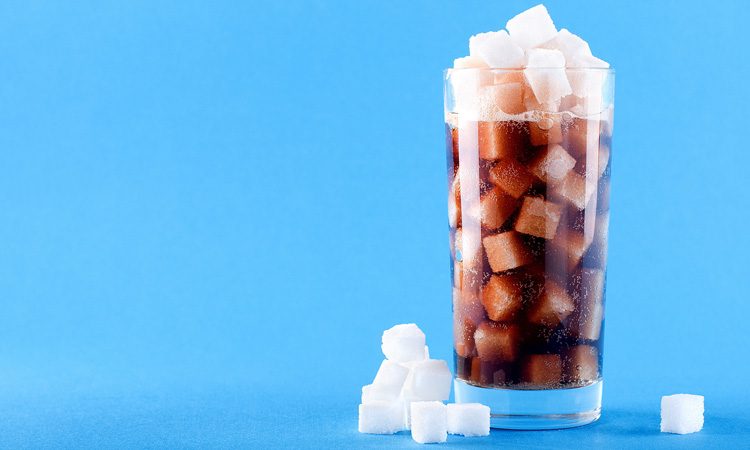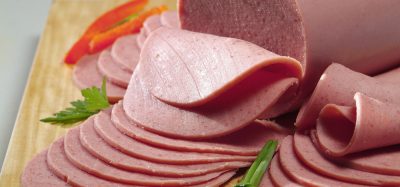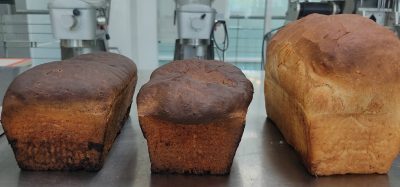Sugar reduction: A new answer for a sugar taxing question
- Like
- Digg
- Del
- Tumblr
- VKontakte
- Buffer
- Love This
- Odnoklassniki
- Meneame
- Blogger
- Amazon
- Yahoo Mail
- Gmail
- AOL
- Newsvine
- HackerNews
- Evernote
- MySpace
- Mail.ru
- Viadeo
- Line
- Comments
- Yummly
- SMS
- Viber
- Telegram
- Subscribe
- Skype
- Facebook Messenger
- Kakao
- LiveJournal
- Yammer
- Edgar
- Fintel
- Mix
- Instapaper
- Copy Link
Posted: 4 October 2019 | Dr Ahmed Abbas Mohamed | No comments yet
Dr Ahmed Abbas Mohamed, Director of Research & Development at WET Group, outlines how innovative technology can enable soft drinks manufacturers to create no (or reduced) sugar, no artificial sweeteners, appetising and cost effective products.


The ongoing battle against rising obesity levels in the UK remains a significant challenge among society, affecting public health policy and resources, and influencing the thinking of the entire food and drink supply chain.
Latest figures from NHS Digital say that 64 percent of adults in England are overweight, while, shockingly, one in 20 women are classed as ‘morbidly obese’. Something has to be done and the food and beverage industry is in the spotlight when it comes to providing effective solutions that are cost aware and palatable to the consumer.
The 2018 introduction of the tax on soft drinks, which is often referred to as the ‘sugar tax’, is one high profile initiative taken by the government to try to stem the rising obesity tide. With the average soft drink consumption level per individual per year exceeding 200 litres, it is no wonder that the UK has fallen in line with France, Norway and Mexico as one of the handful of countries to introduce such a levy on drinks manufacturers.
As a result of the sugar tax, over 50 percent of manufacturers have already reduced the sugar content of drinks, while others are in midst of taking a strategic position on whether to adjust their products to fall in line with the growing demand for healthier drinks with a reduced sugar content.
Those organisations, which have not, so far, taken the decision to reduce the sugar content of their drinks are now confronted with the choice of whether to absorb the cost internally or pass it on to consumers in the form of more expensive products. And, it is not just the influence of sugar that is driving the debate about the health benefits of soft drink products.
For many years there have been a number of concerns presented in the media about the types of additives used in processed food products, and soft drinks have not been exempt from such scrutiny. While much has been done over the past decade to use sweeteners and lessen the use of preservatives and acids across the soft drinks industry, a legacy of concern remains, and such public sentiment is something manufacturers are continuing to battle with.
The need for sugar in soft drink production originates from the standard method of cleaning water from source. Reverse Osmosis is the most commonly used water purification method by bottlers, but it creates an acidic medium and a pH level around 6.1 resulting in a bitter taste that is further worsened by the addition of carbon, preservatives, stabilisers and other chemical ingredients. To ensure that the product is appeasing to the consumers, large quantities of sugar and flavours are added to counteract the overall bitter and salty taste. However, all these additives further reduce the pH level, often creating an acidic solution with a pH level of 2.5.
For manufacturers seeking practical solutions that enable them to produce low sugar products that will appeal to the public, as well as continue to guarantee health and safety, new technology and innovative thinking is providing a new, cost effective and scalable solution.
Research-based solution
WET Group has developed a research project alongside University of Sheffield and De Montford University and co-funded by Innovate UK. The findings from this work has proven that if drink production can maintain a high pH level and lower the amount of total dissolved solids (TDS), it removes the need for any sugar additions.
TDS presence as a result of water infiltration can be due to a variety of reasons, such as agricultural run off or soil contamination. It is not known to produce adverse health reactions, but is normally addressed to improve the aesthetic characteristics of drinking water.
WET Group’s AES (Activated Enhancement System) technology is designed to reverse the manufacturing need for the beverage industry to introduce sugar and other agents to their products, and alternatively produce drinks that are not only lower in calories, but also a proactive tool in the fight against obesity.
The AES technology works by creating a high pH/low TDS water using a proprietary process to mimic nature. This produces an alkaline pH which can be set at any level up to pH 10.5 without the use of ionisation or synthetic chemicals. This water does not fall below a pH of 9 after flavourings have been added, which means that added sugar is not needed to counteract the acidity that no one wants.
The process has been found to have a range of applications for soft drinks, zero alcohol beverages, Cannabidiol (CBD)-infused water and fermented drinks, with the technology now readily available to drinks manufacturers.
In addition, the drinks created in the research also showed no microbial growth when exposed to 12 weeks of ambient and accelerated shelf life testing at 20°C and 30°C respectively. These drinks also contained less than 0.1 g of sugar per 100 ml.
With the food and beverage industry facing an ongoing challenge to reduce sugar, salt and fat across all products without alienating consumer taste preferences, research of this kind suggests that technically advanced solutions are increasingly available to help them do so.
About the author
Dr Ahmed Mohamed is the Director of research and development at WET. He has over 10 years’ experience in medical, biomedical and stem cell research.
Related topics
Beverages, Health & Nutrition, Ingredients, Regulation & Legislation, Salt, Supermarket, The consumer, Trade & Economy
Related organisations
De Montford University, Innovate UK, NHS Digital, University of Sheffield, WET Group









